Tresco Companies Expands its Production Capacity with Maximum RAP
BY Jay Giltz
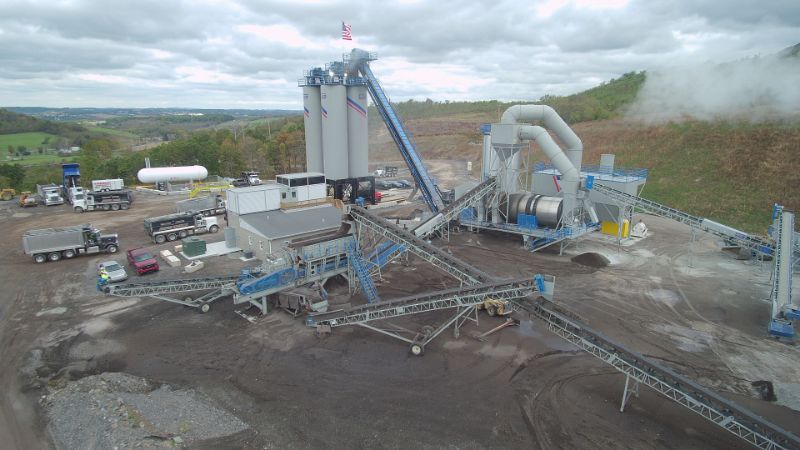
When it came to selecting the right crushing and screening equipment for processing reclaimed asphalt pavement (RAP) at Tresco Companies’ newly expanded Mount Pleasant, Pennsylvania, hot-mix asphalt (HMA) facility, President Sonny Tresco knew where to turn. He’s been in business for a long time.
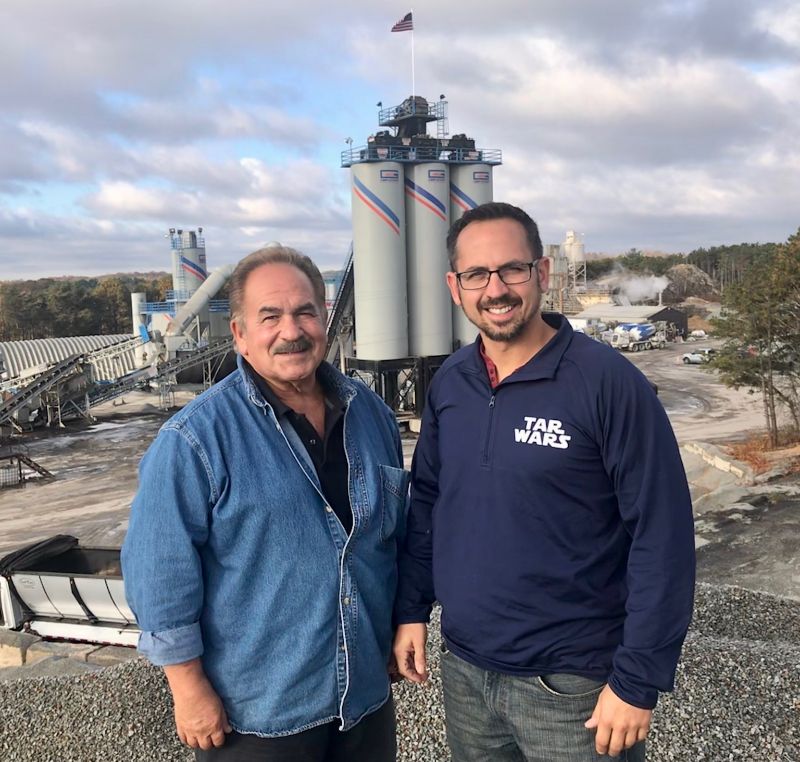
Left to right: Sonny Tresco, president, and Vince Tresco, vice president, of Tresco Companies, are proud of their Mount Pleasant, Pennsylvania, HMA facility.
Tresco Companies, family owned and operated for more than 40 years, operates four companies in the construction industry under its parent umbrella. These include Tresco Paving, TPC Asphalt Supply, Tar Wars Trucking and Tresco Concrete. As a Pennsylvania Department of Transportation (PennDOT) business partner, Tresco Paving performs heavy/highway construction and supplies mix for major roadway projects throughout Allegheny, Westmoreland, Armstrong and Indiana counties, as well as municipal work in the surrounding boroughs and townships.
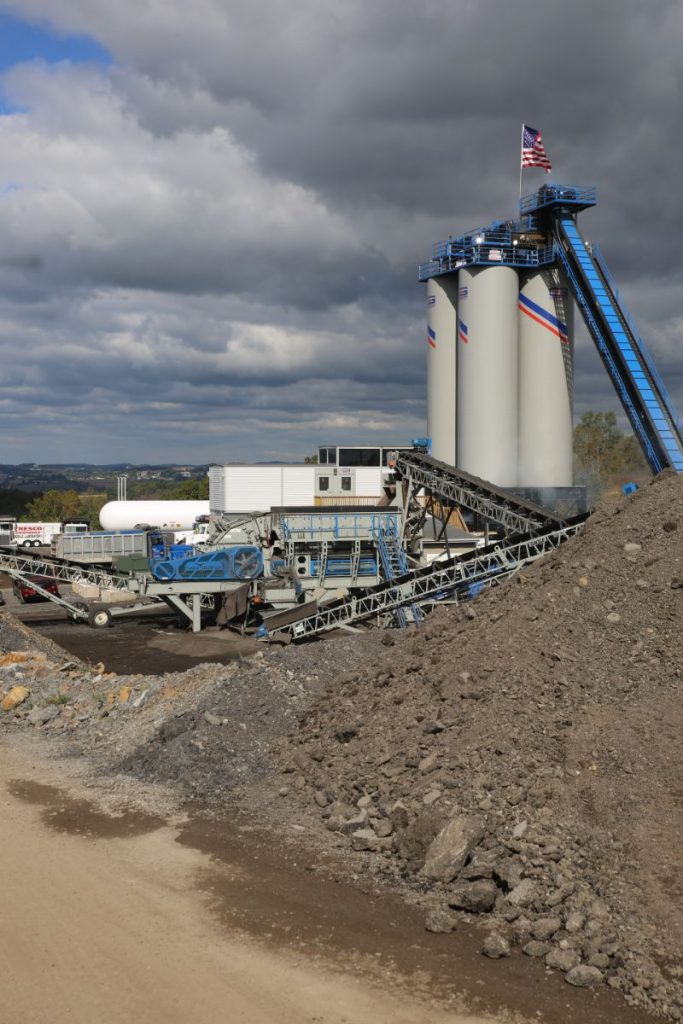
With the help of the MaxRap, Tresco Companies reports production has increased by more than 100 percent. Vince Tresco shared that they typically run 15 percent RAP in the mixes. “We have the ability to run more, but we do our best trying to keep the quality of the mix high.”
In other words, Sonny Tresco is no stranger to the asphalt pavement industry. He understands the dynamics that make the crushing and screening of RAP different, and he knew what he wanted in a crushing and screening plant for this HMA operation.
“Buying equipment is no small investment, and it was crucial for us to make a purchase with a quick return on our hard-earned dollars,” Tresco said. “Just as important, we wanted a RAP crushing and screening plant that was highly efficient.”
Tresco decided on the Eagle Crushing MaxRap®, equipped with the UltraMax® skid-mounted UM-25 impactor and 6 x 20 screen. MaxRap is designed for use with a 600 TPH asphalt drum-mix plant, which Tresco purchased at the same time as the MaxRap. The plants were installed together March 1, 2019, with a collaborative process between Gencor (the manufacturer of the drum-mix plant) personnel and Eagle Crusher personnel to make the installation go as smoothly as possible.
Tresco said, “We chose the Eagle Crusher MaxRap because, while it wasn’t the cheapest on the market, the long-term investment was well worth the short-term cost. We purchased MaxRap because it gave us the flexibility to process materials quickly and efficiently, as opposed to conventional methods for RAP processing, involving the use and purchase of separate units.”
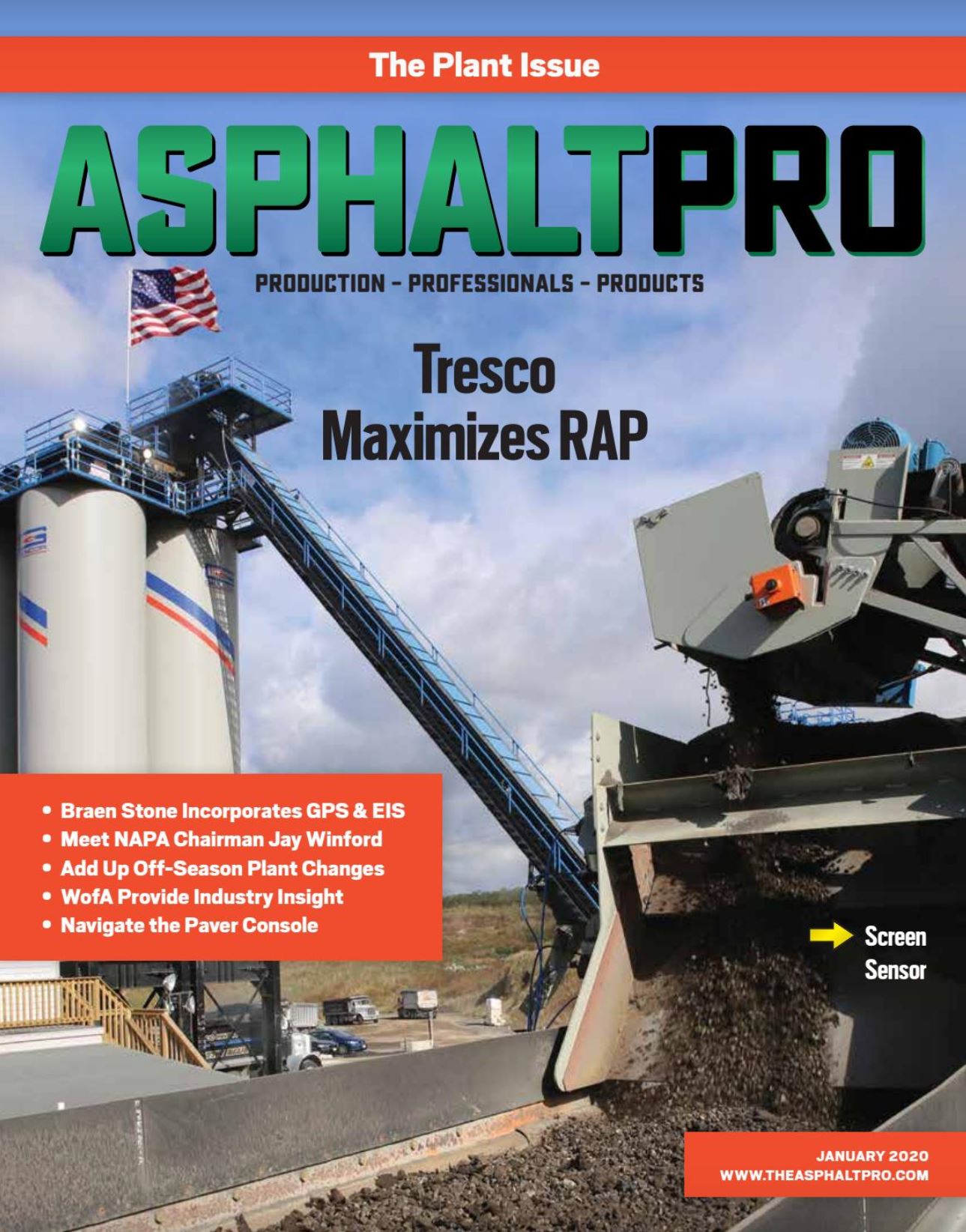
Read the full January 2020 issue of AsphaltPro here.

“The crushing and screening efficiency achieved with the MaxRap allowed us to consistently hit bonus incentives with PennDOT,” Tresco continued. “Quality asphalt production is a top priority with us, and the MaxRap is paying for itself by helping us achieve these incentives.”
Tresco relayed that he had good experiences in the past with Eagle Crusher and uses their impactors at his other facilities.
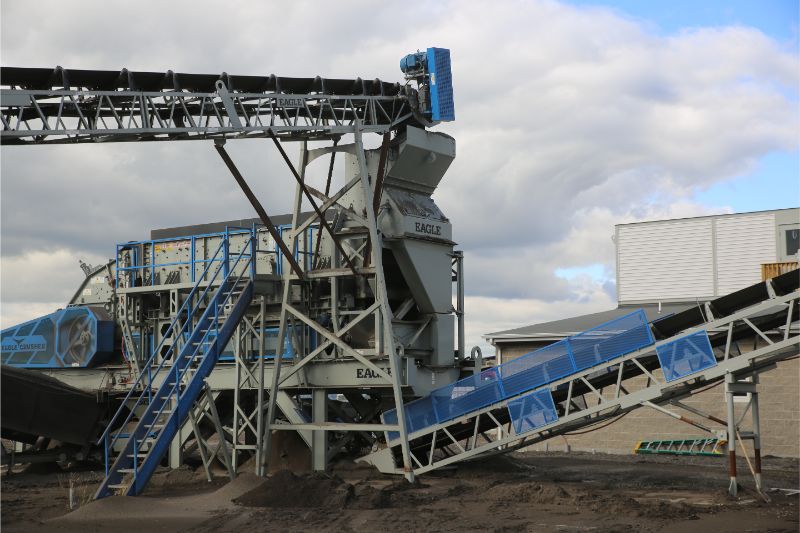
According to Tresco, Eagle Crusher has experts who consult and direct customers to the right plant for their particular operational need, as well as having service people and installers who go the extra mile. He spoke highly of Eagle Crusher’s Mark Simon, who went above and beyond in getting the MaxRap installation completed.
Another consideration in choosing the MaxRap, according to Vince Tresco, vice president of Tresco Companies, is that asphalt producers and the pavers they supply can’t afford shutdowns.
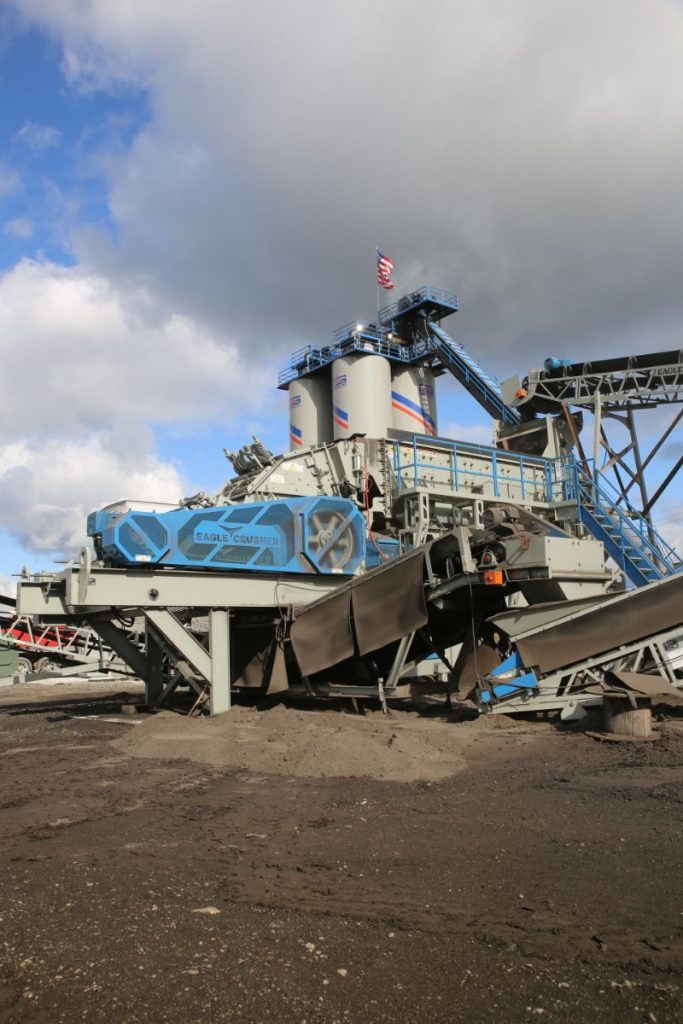
As the impactor separates the binding matrix, the material is aired out, moisture is released and a drier material goes into the hot mix. And everybody knows, drier material saves energy at the asphalt plant.
Vince Tresco said, “If a situation happens where the impact crusher on the MaxRap stops for any reason, all we have to do is push a button for the screen to bypass the oversized material out to the pile, and we can run that product back through at a later date. We don’t have shutdowns with MaxRap, and because of this, we don’t experience the extreme havoc shutdowns can wreak on profits.”
Best Practices for Crushing, Screening RAP for HMA Production
Vince Tresco also relayed that producers can’t afford the time and expense of white rock, which was another reason the company chose an impact crusher over jaw or cone crushers. Jaw and cone crushers are highly effective in crushing hard rock, but because RAP is softer, the repeated actions of jaw and cone crushers as they crush and re-crush the RAP can strip it of the asphalt, resulting in white rock and requiring the extra step and extra expense of recoating.
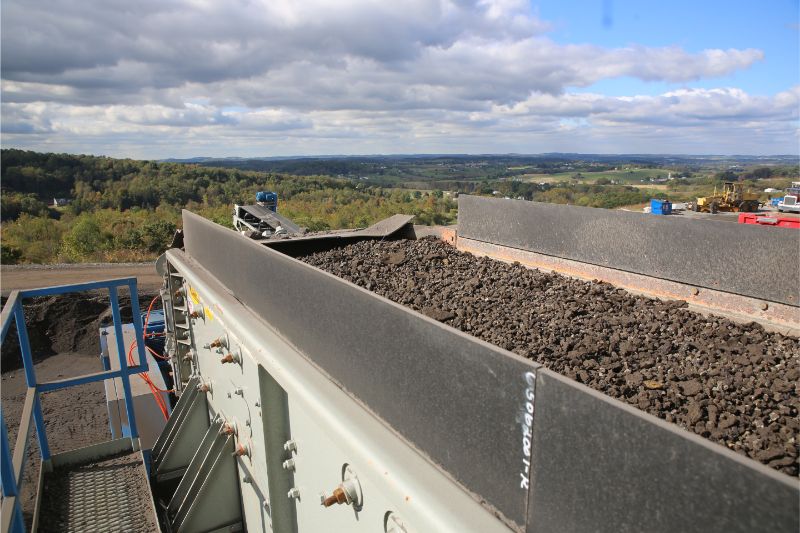
The force of the blow bars explodes the raw material, launching it into the primary curtain at the proper angle, then whacks the material again with the secondary curtain liners to prepare the RAP for its final reduction. There is a minimum of white rock and a minimum of fines produced by the impactor, and a more structurally sound product.
Producers who have always used other crusher types for RAP processing may wonder exactly how impact crushers work to provide so many efficiencies and quality product. The answer is in the impact crusher’s design. The force of the blow bars explodes the raw material, laughing it into the primary curtain at the proper angle, then whacks the material again with the secondary curtain liners to prepare the RAP for its final reduction.
The RAP, impacting into the curtain, separates the binding matrix, knocks off the arrowheads, and cubes up the product, providing the benefits of the original virgin aggregate. There is a minimum of white rock and a minimum of fines produced by the impactor enabling producers to output high quality and consistent cubical product.
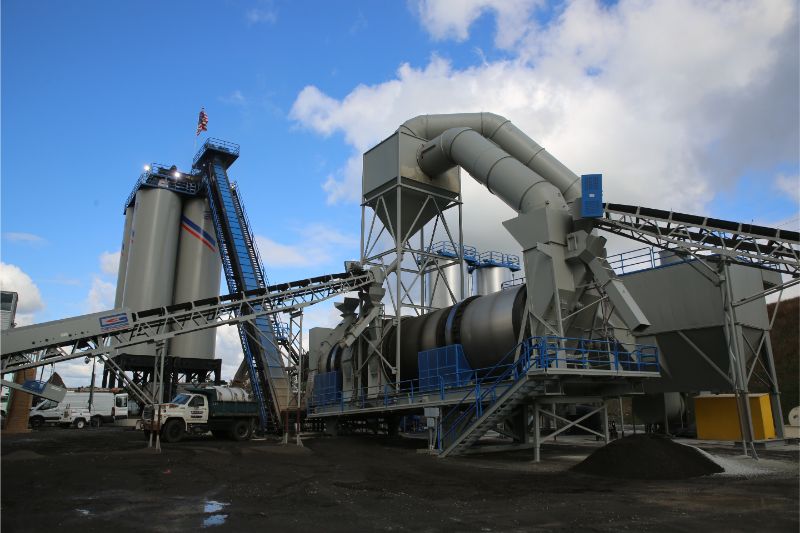
“If a situation happens where the impact crusher on the MaxRap stops for any reason, all we have to do is push a button for the screen to bypass the oversized material out to the pile, and we can run that product back through at a later date.”—Vince Tresco
Cost savings are realized as the impactor separates the binding matrix because, during this process, the material is aired out, moisture is released, and a drier material goes into the hot mix. Drier material saves energy.
The actuated chute work of the MaxRap allows several usage options, all of which Tresco utilizes on a daily basis to make products for projects as simple as a driveway all the way up to DOT specs. With the help of the MaxRap, Tresco Companies has increased production by more than 100 percent. The company operates three HMA facilities in Pennsylvania and has a number of awards to its name.
